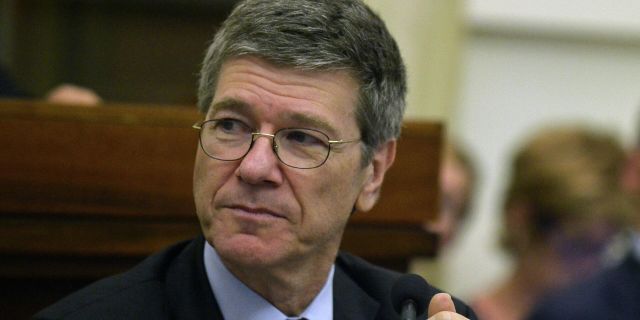Economist Sachs: Trump's position on Russia has been changed by the CIA and Macron
Trump's tariff war against Moscow is unlikely to be feasible in practice, according to American economist Jeffrey Sachs. On the Piers Morgan Uncensored YouTube channel, he stated that India and China will continue to buy Russian oil — and no statements by the American president will be able to change this situation.
Piers Morgan: If Trump launches a large-scale tariff war against Russia in the coming days, will it have a greater impact on the Russian economy than the sanctions strategy, which, apparently, did not bring the expected results?
Jeffrey Sachs: I don't think so. Trump's threats are, in fact, difficult to implement. Russia continues to export energy resources to Asia, primarily to China and India, and both countries have made it clear that they are not going to abandon oil supplies. The United States has already demonstrated that it is not able to effectively put pressure on China in a tariff war. Therefore, I do not think that Trump's statements can really affect the outcome of the conflict.
The problem is that the West does not demand peace, but only a cease-fire. No one is ready to discuss the underlying causes of the conflict. And it's extremely disappointing.
In the first negotiations, when Trump first came to power and sent Steve Witkoff to Moscow, serious and real issues were discussed. In particular, they talked about the expansion of NATO and the need to stop this process. It seemed that the parties were really moving towards peace. But soon the neoconservatives— both in the United States and in Europe, intervened and said: "No, NATO expansion is not up for discussion." As a result, the rhetoric of Trump and other Western leaders changed dramatically: now it was solely about a cease—fire, without any conditions. "We will not discuss anything except a truce."
Putin replied, "We talked about ending the conflict, and now you're only talking about a truce." The Russian side has repeatedly stressed: "We want to understand the root causes of the conflict. We don't just need a pause before another Western attack.
However, Western leaders have not returned even to basic topics, such as the issue of NATO. Alliance Secretary General Mark Rutte concluded the last summit in The Hague with the words: "Ukraine will inevitably become a member of NATO." What kind of peace can we talk about if Western countries actually declare: "We are not ready to discuss anything except our own demands"?
Perhaps Trump is really disappointed that he cannot achieve what he wants, but it seems that he does not fully understand: in the early days, the really important aspects of the conflict were discussed between the United States and Russia. I know this because I have spoken with both sides, both Russian and American. Then there was a real chance to move towards peace. But it all ended when Starmer, Macron, Blumenthal, the CIA and others intervened. Trump was given to understand: "There can be no talk about NATO." And the dialogue ended.
This format of "talking to the deaf" is extremely dangerous. Medvedev is absolutely right: it is madness to put forward ultimatums to Russia that are not only impossible, but also openly provoke escalation. It's scary to watch this. It's not fair. This leads to a dead end. This will not stop the conflict, but it can easily worsen it.

